The trajectory of the Voice will take it through the three stages of conceptualisation, weaponisation and monetisation. Visionary idealists are responsible for most of the social justice advances in history, including universal human rights and equal citizenship. They see injustices and conceptualise ways and means to embed inalienable rights in normative instruments. The UN adopted the Universal Declaration of Human Rights and the Genocide Convention in December 1948. Unfortunately, there is also a downside to idealistic faith in the better angels of human nature, as seen in the Voice debate. Convinced of their own moral rectitude, advocates ascribe evil intent to opponents and refuse to acknowledge and engage with contradictory evidence and arguments. Because they romanticise Aboriginal existence, they retreat into denial of the ugly facets of Aboriginal communities. The Universal Declaration and the Genocide Convention have their origins in the experiences of European civilisation. They are less an assertion of the superiority of European human nature than revulsion at the history of European savagery; not an effort to universalise Western values but to ban the dark side of Western vices like racial and religious bigotry. That is, human vices are no less universal than human rights. Human nature contains angels and devils and neither virtue nor vice discriminates on grounds of race, religion, gender or ethnicity.
There is nothing unique and distinctive, therefore, about individual members of any group exploiting preferential privileges and access to material advantage in educational, career and grant opportunities offered in group-based schemes of state assistance. On the contrary, it’s an entirely rational response by individual actors to the incentive structure, including by fraudulent claims to membership of the favoured groups. Bobby Jindal, the former governor of Louisiana, wrote on 17 July in the Wall Street Journal about, ‘parents at elite private high schools using genetic testing services hoping to identify any ethnic heritage that would boost their children’s college applications’. A far-sighted colleague from another faculty at Otago University in the 1980s gave his kids a Maori middle name.
All the major normative frameworks are inspired by the vision of equal opportunities. However, human beings are inherently unequal in talents, aptitude, application and work ethic. Equality of opportunity therefore guarantees unequal outcomes. In generations following the original visionaries, race and gender baiters and grifters spot a market opening for divisive rabble-rousing and agitation by highlighting unequal outcomes and insisting that equality of opportunity be replaced by equity that has a direct focus on equality of outcomes. They make a professional career out of weaponising the collective disadvantages of the protected group for gaining political influence and acquire a vested interest in the indefinite perpetuation of those very disadvantages. Prominent Yes advocate Greg Craven had earlier recognised this. He wrote that the original Voice model has ‘been colonised by left-leaning ideologues… trying to turn it from a model that was not run by the judges, to a model that absolutely guarantees judicial intervention’. Craven had said this was the result of a ‘ruthless con job’. There is a further splintering into a hierarchy of victimhood. Remember, we are talking about rewarding people today who suffered no race-based prejudiced harms themselves, by inflicting unequal citizenship on others who caused no harms. In this pursuit, how do we assess the relative inherited damage and pain for descendants of: Holocaust survivors, colonised nations and dispossessed Aborigines? Because there is no objective basis for making these distinctions, questioning the special privileges being given to one group leads to the criminalisation of dissent from the dominant hegemonic ideologies.
Then comes the final stage of monetisation, a foretaste of which was provided recently in Western Australia when $2.5 million was the asking price for planting trees by environmentalists. In the US it has taken the form of calls for reparations for slavery to be paid to every black American, including in California which had no slavery. We can see some Aboriginal activists positioning themselves to use the Voice as the constitutional enabling mechanism to make demands for compensation and reparations for historical injustices and rent for current activities. To repeat, lest I be misunderstood. This is not unique or distinctive to Aboriginal people, but universal human nature. Elevating victimhood over qualifications, skills and achievements creates incentive structures to misrepresent racial, gender and sexual orientation identities in order to access victim-targeted advantages in educational and professional pursuits.
Greg Craven was quoted in the Australian on 19 July as being ‘beside myself with rage’ after his ‘fatally flawed’ criticism of the government’s preferred Voice model because it can ‘comment on everything from submarines to parking tickets’. This will delay and could frustrate the machinery of government, leaving its fate hostage to the radical demands of any activist so inclined. In an article on 20 July, Craven called the No case ‘vicious’ and accused the No campaigners of engaging in ‘some pretty nasty dingo-whistling’. He complains his own words from March have been taken out of context, that the No pamphlet doesn’t note his support for the Voice and that he is so ‘personally hurt’ that he ‘may need trauma counselling’. Yet the No pamphlet explicitly states: ‘In the words of a constitutional law professor who supports the voice’.
Where China’s late supremo Deng Xiaoping said what matters is if the cat catches mice, not if it’s black or white, today’s victimologists insist that all that matters is if the cat is black or white; its mice-killing ability is irrelevant. Words like ‘merit’ and the correct maths answer are examples of hate speech redolent of white privilege. Traditional champions of racial equality called for everyone to be judged on the content of their character, not the colour of their skin, the mix of their chromosomes or their house of worship. The new champions demand that everything be explained by the latter attributes. Michael Baume noted on 8 July that neo-indigenes – the part-Aboriginal, city-dwelling, better off activists – outnumber traditionalists living in remote communities two to one. Many are self-identifying. Their numbers are growing. They already dominate the discourse and the dominance gap will increase with growing numbers. The intra-Aboriginal city-outback gap is wider than between Aboriginals and other Australians. Because the needs and priorities of the two groups are different, the numerical weight of the urban neo-indigenes – the remote Aborigines ceased being a majority fifty years ago – will ensure they garner most of the access and resources in the name of the Voice. Closing the gap between outback Aboriginal communities and urban average metrics requires putting Aboriginal kids in schools and adults in jobs, not symbolic recognition in the constitution.
Got something to add? Join the discussion and comment below.
Get 10 issues for just $10
Subscribe to The Spectator Australia today for the next 10 magazine issues, plus full online access, for just $10.
You might disagree with half of it, but you’ll enjoy reading all of it. Try your first month for free, then just $2 a week for the remainder of your first year.

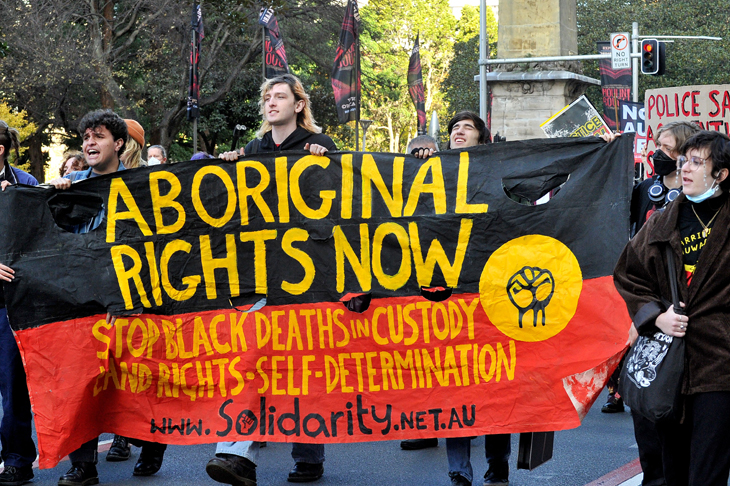
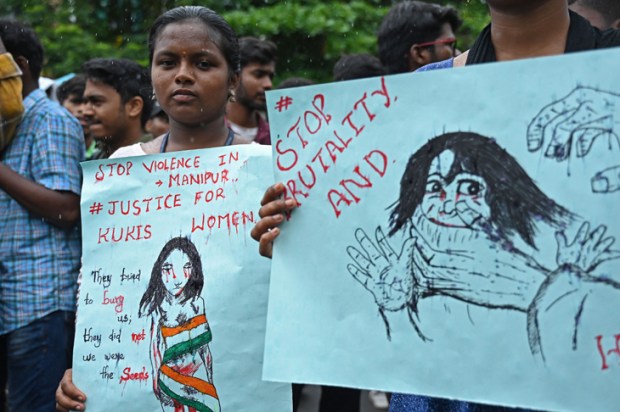

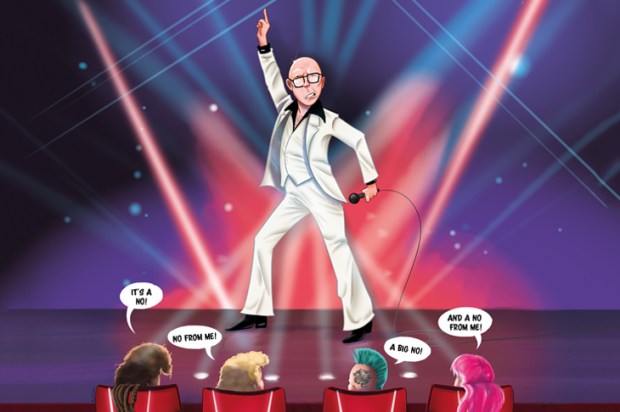
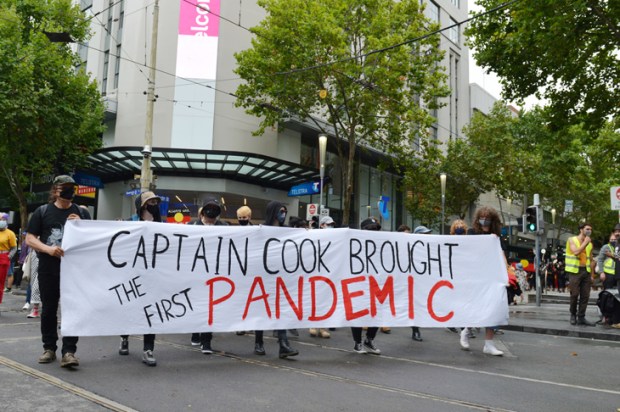
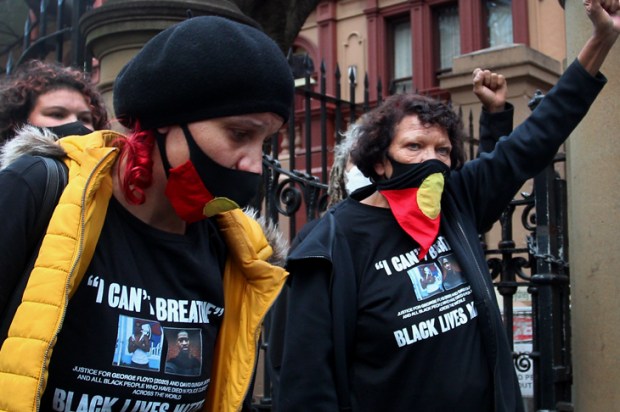







Comments
Don't miss out
Join the conversation with other Spectator Australia readers. Subscribe to leave a comment.
SUBSCRIBEAlready a subscriber? Log in